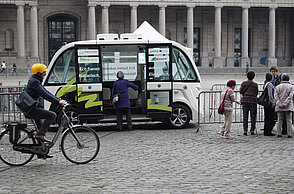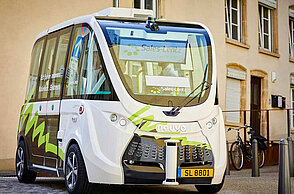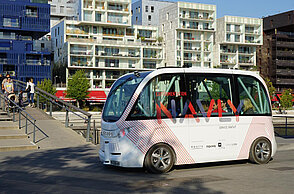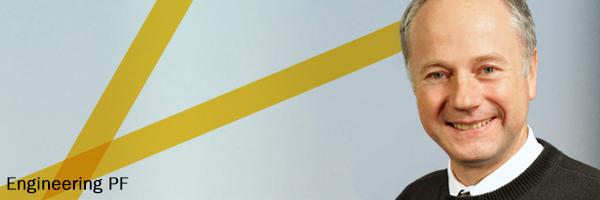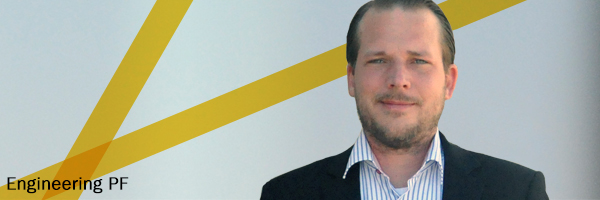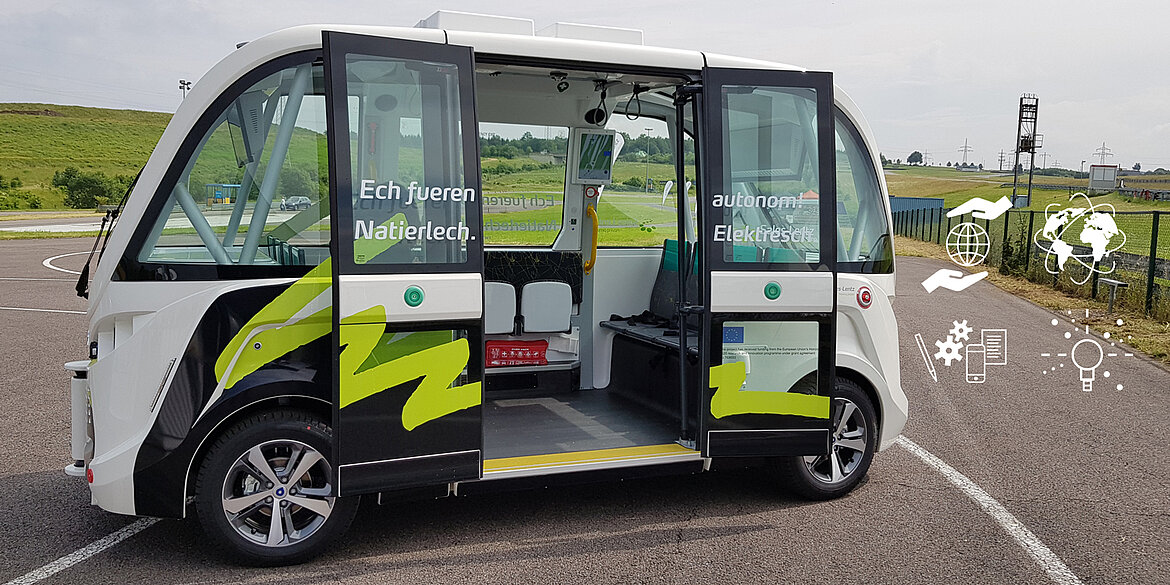 Future mobility: sustainable urban mobility // #responsible, #international, #practical, #innovative
Future mobility: sustainable urban mobility // #responsible, #international, #practical, #innovative
Future Mobility
The way we move has been changing and the mobility of the future will be characterised by new technologies and innovative concepts.
These innovations include automated, connected, electric, shared, multimodal and intermodal mobility. The new concepts include, for example, Mobility as a Service (MaaS), Intelligent Transport Systems (ITS), Sustainable Urban Mobility Plans (SUMP) or a new form of mobility that focuses on a purpose economy.
The overarching goal is always to achieve more sustainable mobility for more livable cities and to improve the satisfaction of society's mobility needs.
In line with these perspectives, the AVENUE project has deployed fleets of autonomous minibuses on the roads of Geneva, Lyon, Copenhagen and Luxembourg. The aim is to improve public transport by offering on-demand and door-to-door ride services, to promote intermodality and sustainability, and to improve accessibility for passengers.
Projects such as AVENUE are helping to pave the way to future mobility. The socio-economic and environmental impact assessments provide a solid basis for formulating recommendations for the future deployment of automated vehicles in European cities.
AVENUE
Autonomous Vehicles to Evolve to a New Urban Experience
The aim of AVENUE is to demonstrate the possibilities of automated driving for public transport by deploying, for the first time ever, fleets of autonomous minibuses in four European cities (Geneva, Lyon, Copenhagen and Luxembourg). In doing so, AVENUE is reshaping public transport services, but starting from the original premise of enabling passengers to get from one place to another. It takes into account their specific needs and time constraints, rather than trying to squeeze automated vehicles into existing solutions. In this context, AVENUE introduces new paradigms for public transport based on demand-responsive door-to-door services and the concept of Mobility as a Service (MaaS), aiming to create a new model of public transport. This model enables multimodal mobility that combines conventional public transport with new service models such as those of the sharing economy and uses all possible modes of transport (from bicycles to trains and, of course, automated vehicles).
Vehicle services will be introduced that significantly improve the passenger experience and the overall quality and value of the service, also targeting older people, people with disabilities and vulnerable users. Road behaviour, safety of the automated vehicles and passenger safety are key issues of the AVENUE project. At the end of the four-year period, the aim is to prove that automated vehicles can be the future solution for public transport. The AVENUE project demonstrates the economic, environmental and social potential of automated vehicles for both businesses and public commuters, while also assessing the safety of the vehicles on the road.
This assessment is being carried out by a team of scientists, some of whom work at Pforzheim University, from where they are working to identify what the social, environmental and economic impacts and changes of automated transport are. These investigations and their results are incorporated into the teaching of the School of Engineering at Pforzheim University.



